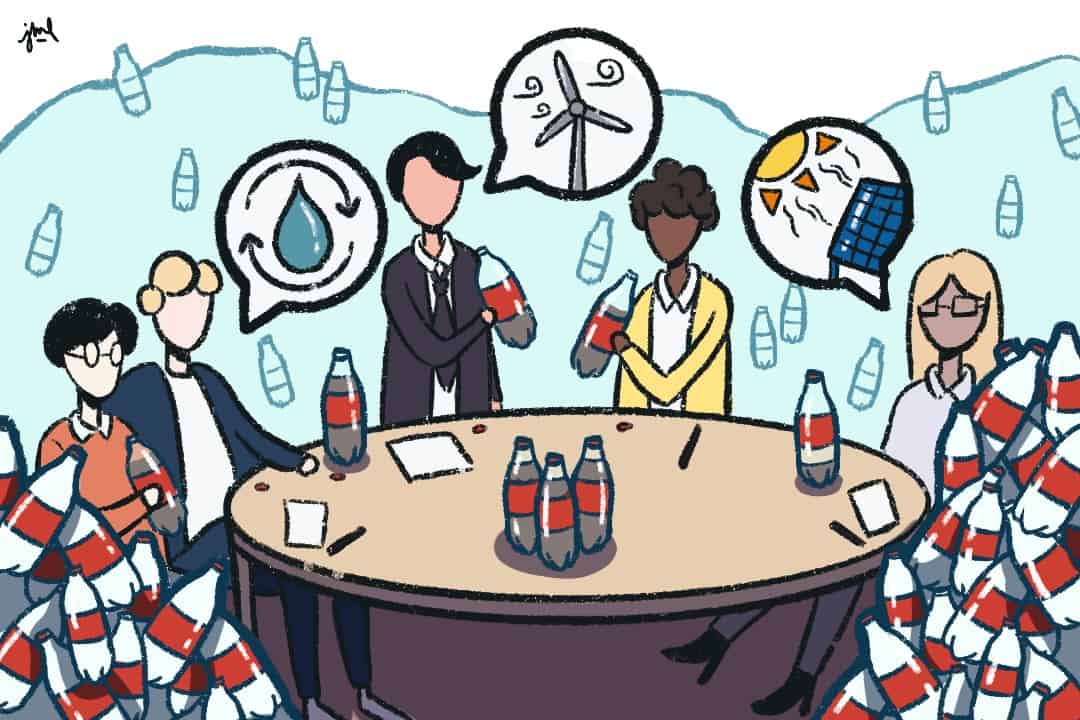Given the worsening state of the climate, there has never been a more pressing time to take action against climate change. Scientists and environmentalists alike have warned of the dangers of continued stress on the environment and emphasized the importance of preventing further damage. We have now entered a critical time frame for action: one that necessitates immediate responses and meaningful efforts to change conventional practices of consumption that disregard the environment.
This year presents a valuable opportunity for governments to work together to set new commitments. In November, the 27th annual Conference of the Parties (COP27) will be held in Sharm El-Sheikh, Egypt. As the major decision-making forum of the United Nations Framework Convention on Climate Change (UNFCCC), the primary goal of each COP is to understand whether the current action taken by nations to combat climate change is working toward the Paris Agreement’s goal to limit temperature increase.
COP27 is an opportunity to make real changes and effective commitments. As a forum that brings together major international actors, COP27 is the best platform to collectively address the challenges that are intertwined with changing environmental conditions.
The UNFCCC advertises COP27 as a transparent and inclusive space for deliberation. However, on September 30, the government of Egypt announced its decision to partner with Coca-Cola and introduced the company as a sponsor for COP27. The partnership calls into question the integrity of COP27 and its plans to use the climate conference as an opportunity to accelerate climate action.
In 2021, the Coca-Cola Company was identified as the world’s top polluter for the fourth year in a row. While the corporation claims to be working toward a more sustainable process, data from Break Free from Plastic, a global movement that aims to limit plastic pollution, effectively disproves Coca-Cola’s allegations. It is completely backwards for the world’s leading conference on climate change to associate itself with the world’s top polluter. COP27 was created to regulate actors with impacts like those of Coca-Cola — not rely on them for sponsorships.
Operating in 39 countries and producing 19,826 plastics in 2021, Coca-Cola produces more plastics annually than the next top two plastic polluters. Audits conducted by Break Free from Plastic showed that the company was responsible for three million metric tons of plastics in 2020, producing greenhouse gas emissions equivalent to that of over three million vehicles. Electric vehicles are all the rage, yet Coca-Cola’s impact alone makes the goals of sustainable transportation and electric vehicles seem trivial.
This partnership contradicts the fundamental values of the UNFCCC and COP27. The practices of the Coca-Cola company directly undermine the Paris Agreement’s goal, and the world’s ability, to limit temperature increases below 1.5 degrees Celsius.
Coca-Cola’s operations are also deeply connected to the fossil fuel industry. The company is not only reliant on these nonrenewable forms of energy but also benefits from them — the number of plastics required to run Coca-Cola’s operations makes huge profits for fossil fuel companies.
Coca-Cola depends on fossil fuels for production and manufacturing, yet phaseouts of these resources and increased reliance on renewable energy are on the list of topics for the upcoming climate conference. This presents a direct conflict with what the UNFCCC and COP27 claim to address.
The contradiction between the goals of COP27 and the actions of its top sponsor has caused many environmentalists and activists to speak out and demand change. Despite the significant backlash of the decision, both the company and COP27 coordinators have continued to support the partnership.
Acraf Ibrahim, Ambassador of the Republic of Egypt and COP27’s acting organizational and financial coordinator, believes that the involvement of private corporations in environmental conferences is a positive step toward a collective action plan. His belief is supported by the more recent actions from Coca-Cola, which, according to the company’s chief sustainability officer, has reduced the carbon emissions of its process by 30 per cent since 2010.
This is a positive step toward the eventual goal of net-zero emissions. However, that doesn’t change the fact that Coca-Cola is the world’s top polluter but is sponsoring a conference on climate change that represents ideals of sustainability and mitigation.
The reality of the situation is that such a time-sensitive global issue requires collective, cooperative action toward solutions. The climate crisis affects all of humanity and as such, mitigation, adaptation, and commitment to environmental protection have never been so important. Previous attempts and current actions have proven inadequate, and the world is off track to meeting the Paris Agreement’s 1.5 degrees C target. Each delay makes irreversible damage more likely, and the COP27–Coca-Cola partnership is another example of the prioritization of funding and profits over environmental health. Simply put, this is greenwashing for the sake of public perception.
Plastic pollution from companies like Coca-Cola threatens the survival of both the environment and future generations, and the damage driven by plastic waste will exacerbate already complicated problems. Perhaps in the next month, we will see changes to the sponsorship decision, but if the partnership endures, the fundamental values of COP27 are clearly misaligned with its actions.
Chloe MacVicar is a third-year student at University College, studying environmental studies, political science, and writing.


